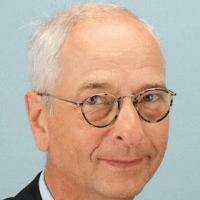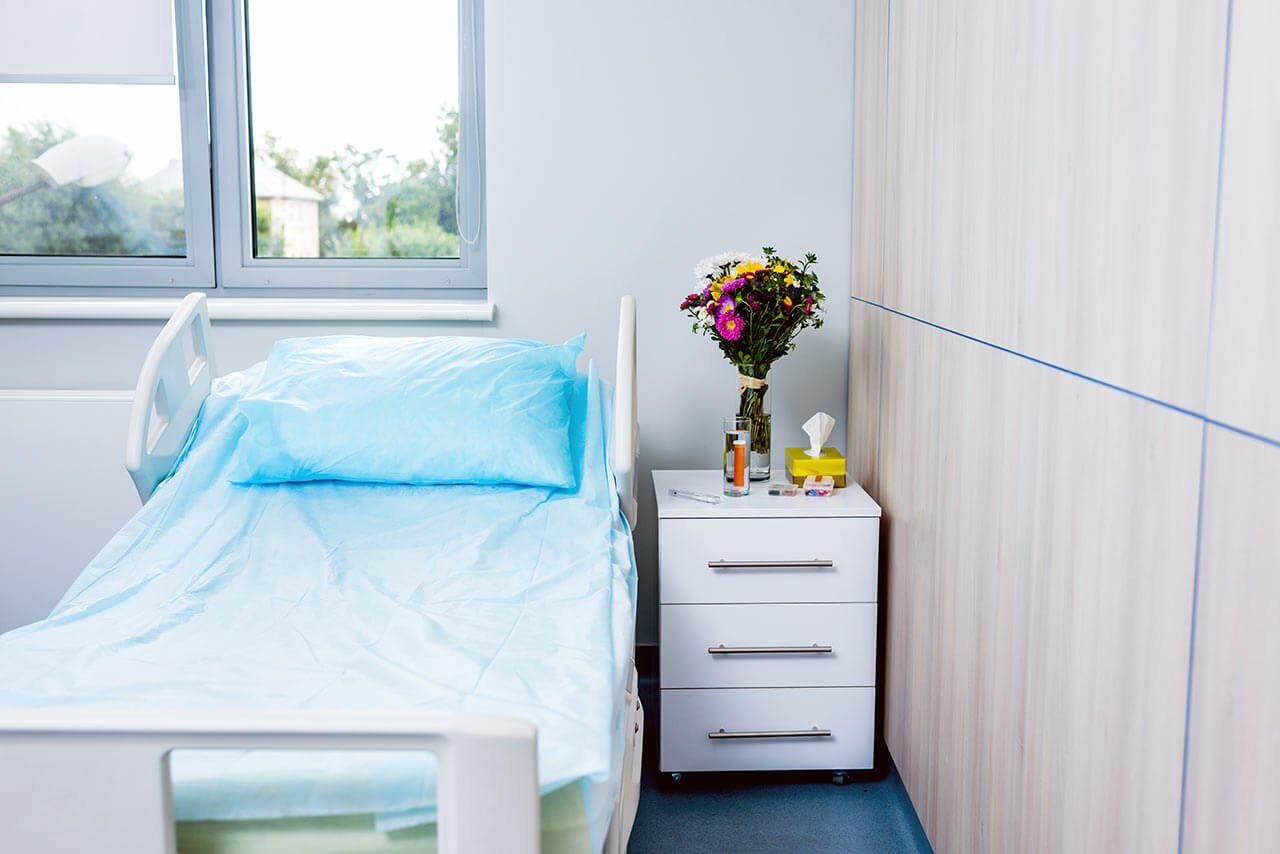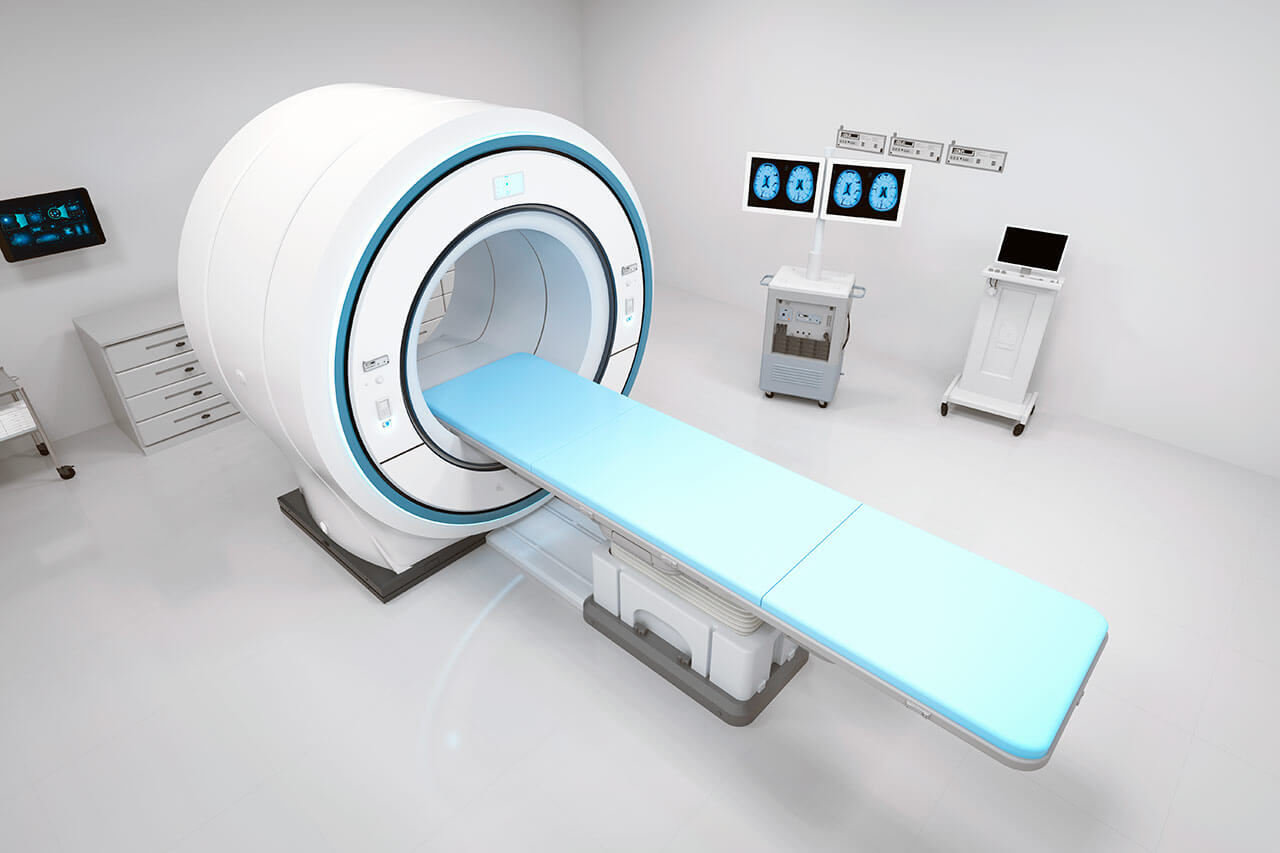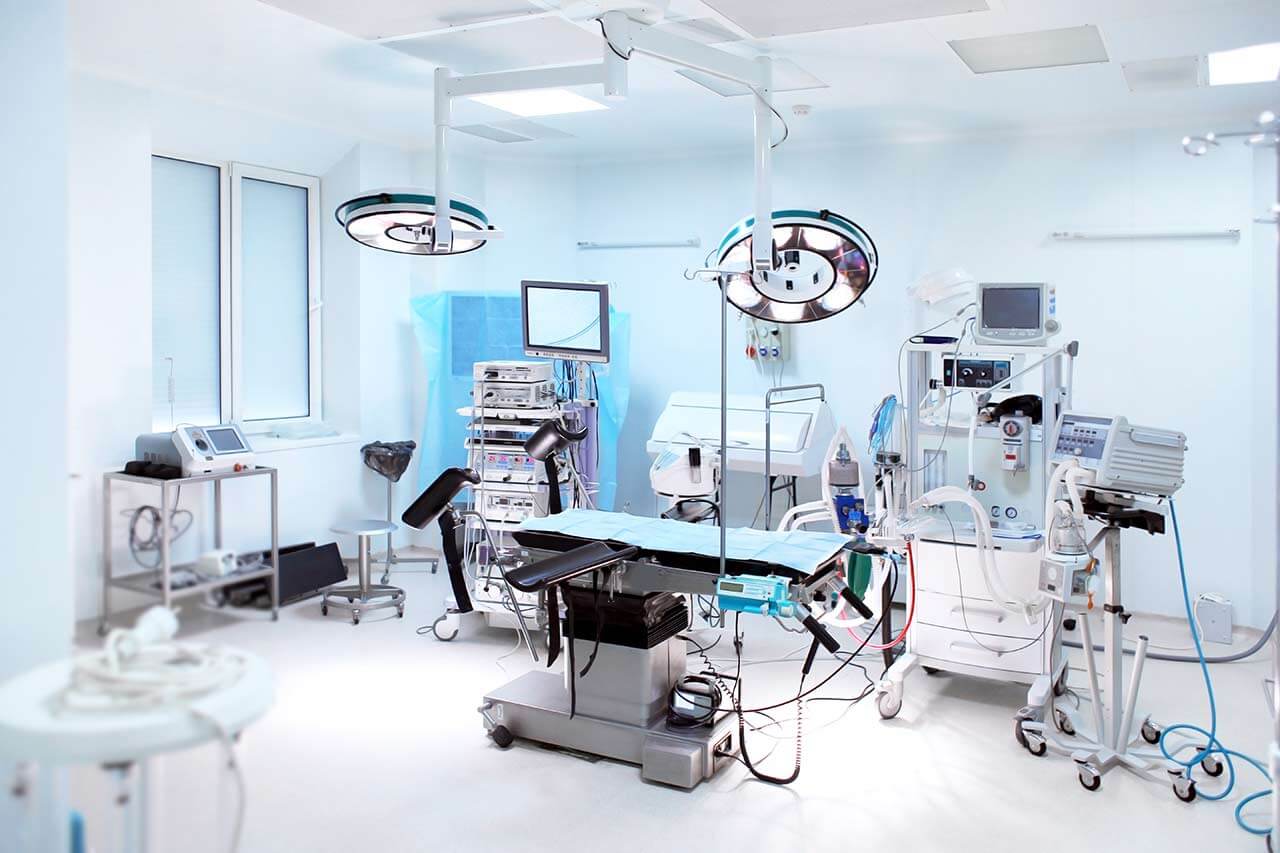
The program includes:
- Initial presentation in the clinic
- clinical history taking
- review of medical records
- physical examination
- laboratory tests:
- complete blood count
- general urine analysis
- biochemical analysis of blood
- TSH-basal, fT3, fT4
- tumor markers
- inflammation indicators
- indicators blood coagulation
- ultrasound of the neck and of lymph nodes
- CT/MRI scan of the mouth
- general otolaryngological examination
- preoperative care
- tumor resection
- histologically and immunohistochemically examination of the remote tissues
- symptomatic treatment
- control examinations
- the cost of essential medicines and materials
- nursing services
- full hospital accommodation
- explanation of future recommendations
Required documents
- Medical records
- MRI/CT scan (not older than 3 months)
- Biopsy results (if available)
Service
You may also book:
 BookingHealth Price from:
BookingHealth Price from:
About the department
The Department of Adult and Pediatric Oral, Maxillofacial Surgery at the University Hospital Giessen UKGM offers the full range of diagnostic and therapeutic services in the field of its competence. The department specializes in the correction of dysgnathia, complete cleft lip, jaw and palate, maxillofacial cancer surgery, laser therapy, dental implantology, traumatology and craniosynostosis surgery in children. The surgical options also cover plastic aesthetic and reconstructive surgery. The health of the department's patients is in the good hands of a highly qualified, experienced team of first-class experts. The department is headed by Prof. Dr. med. Dr. med. dent. Hans-Peter Howaldt.
The department is distinguished by exceptionally successful achievements in the treatment of maxillofacial tumors. It is also achieved due to the long work of the Chief Physician of the department in the German-Austrian-Swiss Working Group on Maxillofacial Tumors (DÖSAK) and the German Cancer Society, as well as participation in the development of guidelines for the treatment of oncological diseases of the maxillofacial region.
The first stage of treatment is the study of anamnesis and comprehensive diagnostics. If a malignant tumor is suspected, the patient should necessarily undergo biopsy. Should a tumor be detected, the patient will be prescribed further examinations in order to determine the stage of the disease. For this purpose, the department has such imaging techniques as sonography, endoscopy, X-ray, CT, MRI, PET-CT, scintigraphy. The complicated clinical cases are discussed at weekly multidisciplinary tumor boards. The treatment process often involves the specialists in otolaryngology, neurosurgery, ophthalmology, general surgery, etc. The optimal treatment tactics is determined according to the nature, size, location, as well as the presence of metastases.
Tumor resection can be performed both on an outpatient (under local anesthesia) and inpatient basis. In the case of advanced and malignant tumors, a longer hospital stay is usually required. In some cases, the tumor resection in the maxillofacial region may lead to the formation of functional and aesthetic defects. In such cases, the patient also undergoes plastic reconstructive interventions in order to eliminate defects and improve the quality of life. Particular importance is given to immediate restoration and reconstruction by means of free tissue transfer with microvascular anastomosis. The defect repair using patient's own tissues is usually part of the surgical tumor removal. In cooperation with chemotherapists and radiation therapists, the department also provides the necessary follow-up therapeutic measures. After treatment completion, the patient should regularly be followed up by a doctor in order to avoid tumor recurrence.
As the maximum care medical facility, the department also specializes in the treatment of injuries of the craniofacial area in adults and children. The department's Surgical Emergency Unit operates around the clock. It is equipped with the multislice CT of the latest generation for the diagnostics of injuries of varying severity. The spectrum varies from superficial abrasions to complex fractures in the facial skeleton.
One of the key focuses of the department's work is also the correction of all types of cleft lip, jaw and palate in babies. The treatment of a child begins from the first days of his life (the doctors assess the state of the child, the complexity of pathology and begins preparations for the operation). The operation is performed on the 5th or 6th month of the baby's life. Obviously, due attention is paid to consultations for parents and their participation in self-help groups. The surgical correction of the cleft is usually performed in two stages, which meets international standards and guarantees an optimal result. The first stage is called palatoplasty (excision of hypertrophic tissue of the soft palate), and the second one is cheiloplasty (correction of the shape and size of the lips). The follow-up outpatient monitoring after surgery can be carried out until adulthood. In some cases, additional measures may be required, for example, jaw bone reconstruction at the age of 10-12 years, cosmetic interventions in adulthood.
The service range of the department includes:
- Surgical correction of dysgnathia
- Surgical correction of complete cleft lip, jaw and palate in children, including follow-up postoperative monitoring on an outpatient basis
- Surgical correction of craniosynostosis in infants
- Surgical treatment of maxillofacial tumors
- Laser therapy (QS-Nd:YAG laser and CO2 laser)
- Vascular changes (for example, spider veins, angiomas, hemangiomas)
- Pigment spots
- Scars
- Warts
- Dental implantology
- Surgical treatment of maxillofacial injuries
- Soft tissue injuries
- Facial skeleton fractures
- Treatment of endocrine ophthalmopathy (in collaboration with the Department of Ophthalmology)
- Symptomatic conservative treatment using immunosuppressive cortisone therapy and irradiation of proliferating tissue by means of powerful X-rays
- Orbital decompression
- Plastic aesthetic facial surgery
- Nose reshaping (rhinoplasty)
- Eyelid correction (for example, in dermatochalasis, ectropion)
- Auricle reshaping
- Chin correction
- Plastic facial reconstructive surgery
- Scar revision
- Implantation of free skin grafts and skin flaps
- Microvascular anastomotic free tissue transfer
- Implantation of skin expanders
- Placement of epitheses
- Other medical services
Curriculum vitae
Prof. Hans-Peter Howaldt studied Human Medicine and Dentistry at the Free University of Berlin and at the Friedrich-Alexander University of Erlangen-Nuremberg. In 1976, he became the Corps Member of Neoborussia Berlin and Guestphalia Erlangen. In 1980, he received the title of Dentist, and in 1983 he became the Doctor of Medicine. In 1983, he began his work in the Department of Oral and Maxillofacial Surgery at the University Hospital Frankfurt. In 1990, he had his habilitation in Oral and Maxillofacial Surgery. In 1992, he received an additional specialization in Plastic Surgery.
In 1994, he became the Head of the Department of Adult and Pediatric Oral, Maxillofacial Surgery at the University Hospital Giessen UKGM, and in 1997 he also held the position of Head of the Department at the Justus Liebig University Giessen.
Of particular interest to the doctor is the treatment of maxillofacial cancers. He is a Member of the German Cancer Society and international professional societies. Previously, he also was the Board Member of the German Society of Oral and Maxillofacial Surgery.
Photo of the doctor: (c) UKGM - Universitätsklinikum Gießen und Marburg GmbH
About hospital
The University Hospital Giessen UKGM positions itself as an ultramodern medical facility with outstanding quality of medical care. The hospital presents almost all areas of medicine, ranging from ophthalmology to traumatology and dentistry. The priorities of the hospital’s activities include surgery, neurosurgery, oncology, nephrology with kidney transplantation and pediatric medicine.
The hospital is the third largest in Germany. Every year, more than 436,000 patients are treated in two locations of the hospital (Giessen and Marburg): 342,000 outpatients and 94,000 inpatients. The medical facility is the first privatized university hospital in the country.
The hospital staff is engaged not only in clinical practice, but also in research activities on the basis of the Faculty of Medicine at Justus Liebig University Giessen and Philipps University of Marburg, which contributes to a significant contribution to the development of modern medicine. During the many years of productive work on the development of new diagnostic and treatment methods, the hospital’s doctors managed to make many significant discoveries.
The hospital enjoys an excellent reputation in Germany and far beyond its borders. It managed to gain such credibility thanks to the high competence of doctors, advanced equipment, high-quality medical service and care.
Photo: (c) depositphotos
Accommodation in hospital
Patients rooms
The patients of the University Hospital Giessen UKGM live in comfortable rooms made in a modern design and light colors. Each room has an ensuite bathroom with shower and toilet. The standard room furnishing includes an automatically adjustable bed, a bedside table, a wardrobe, a table and chairs for receiving visitors, a TV, a telephone.
Meals and Menus
The patients of the hospital are offered balanced, healthy three meals a day: buffet breakfast, lunch and dinner. The private kitchen, certified according to DIN EN ISO 9001:2000, is responsible for providing patients with food and drinks.
If for some reason you do not eat all foods, you will be offered an individual menu. The hospital also has a cafeteria with a large assortment of hot and cold drinks, snacks and desserts.
Further details
Standard rooms include:
Television
All patient rooms are equipped with TV sets. If you have some questions, please contact medical personnel.
Religion
Religious services can be provided upon request.
Accompanying person
During an inpatient program, an accompanying person can stay with you in a patient room or in a hotel of your choice.
Hotel
During the outpatient program, you can stay at the hotel of your choice. Our managers will help you to choose the most suitable option.




